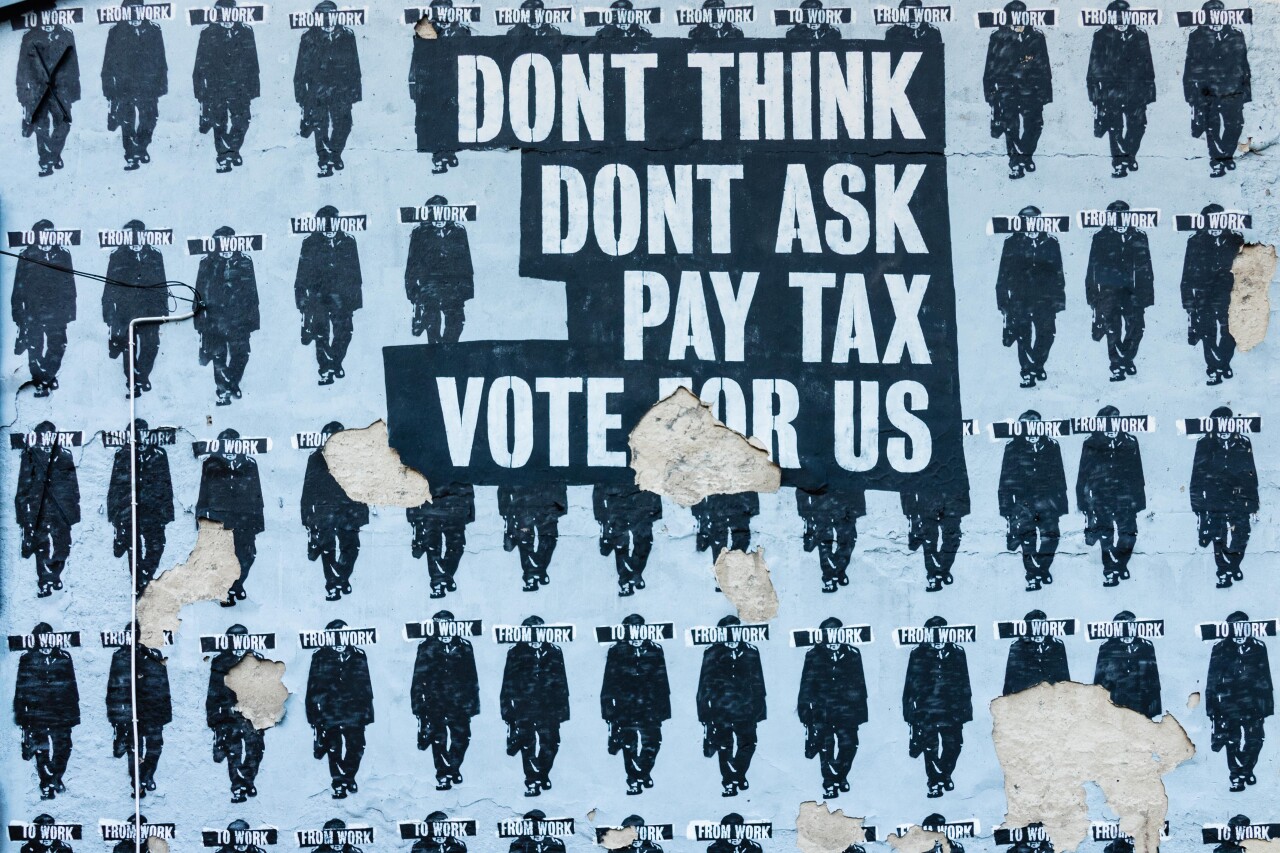How do you protest a tax which is required, especially in a rural area such as ours, in order to go about your daily activities? Any nonpayment of such a tax isolates you on the side of the road, in poor standing with a police officer. In mid-February, that was my situation, and I was issued a traffic citation for failure to renew a vehicle registration. I’m nearing 40 years old and that was my first ever citation, so I’m obviously not a habitual scofflaw. I was trying to protest, in a peaceful way, that I really was upset with the Washington State government’s prevention of our voted, and successfully passed, $30 car tabs initiative from taking effect when it should have. For me, this is not so much about the money I save, or of having a number of taxes capped from their inevitable rise – rather it’s much more about the respect and deference that a government has for its citizens, who are supposed to be in control of it.
I do believe that the State should be held accountable by its citizens when it comes to what it is permitted to do, even for smaller issues such as this. The State should especially meet with resistance and resolve by citizens when it makes a habit of ignoring the expressed wishes of those citizens from a legitimate vote. Otherwise, it gets used to rolling over its people in small ways and, so accustomed to throwing its enormous weight around, it can easily blunder over serious lines that it absolutely should not cross.
You may know that on Dec 4th of last year, the day before the initiative was to take effect, the Supreme Court ruled that the injunction would be put into place and I-976 would be “temporarily” stopped. The interesting part here is the dissent to the Court’s decision. A third of the Supreme Court justices did not agree with the majority, and wrote that the financial impact that the municipalities and transit jurisdictions challenging the initiative would suffer, did not outweigh other considerations. They wrote, “[T]hese monetary injuries are not the only ones that matter. Also important is the potential harm to voters’ confidence in the initiative system and our democratic process as a whole.”
The dissenting justices were right, and their opinion really should have been the majority. The state’s actions on this particular issue has indeed damaged my confidence in our system, and likely yours as well – after all, 65% of the voters in this county, a super-majority, voted to pass the initiative into law. This is now the 3rd time that we have successfully voted for this issue to pass. How many more times must we vote on this? In light of all this, one is forced to wonder, if our representative form of government, which derives its authority from the people, does not think that it needs to listen to those people when they give instructions, then just what sort of system do we have?
This is not about the legal challenge process itself, which many such new laws must go through. It’s about the State grasping at any available procedural or technical straws to nullify the vote of the people, in order to protect one of its major funding sources. It’s about an Attorney General, with multiple conflicts of interest in this matter, who is trying not to appear to be obviously sabotaging the initiative, but is certainly not giving his all to defend it. It’s about the contempt for, and patronizing insults directed towards, the voters by those in state government, such as when they say that voters were confused, or didn’t know what they were voting on. It’s about municipalities and other jurisdictions being quite free with taxpayer money in their attempts to defeat the will of the people, yet again. It’s about the people making crystal clear their wishes, multiple times, and the people’s representatives in the Legislature ignoring those desires and refusing to represent the interests of those people. All these go against justice, and fairness, which are pillars of American jurisprudence and culture.
The Supreme Court should have realized that a more equitable way forward was necessary, perhaps something like temporarily suspending enforcement of the RCWs requiring current vehicle registrations. Then, the municipal challengers to the initiative would also have some skin in this game, and are encouraged to not unnecessarily tie up this legislation in court. Similarly, I was adamant that I would not pay the fine for my citation in cash, and thereby economically encourage the State to continue doing these things to all of us. So instead, I’ll do additional community service time to cover the penalty, and directly help my neighborhood instead of adding to the coffers of a deaf government.
This issue still isn’t over, not by a long shot. On March 27th, due to strategic “errors” by the Attorney General’s office, the case against the initiative proceeds to the State Supreme Court. It is expected to take at least a year, and likely will take longer, to decide the issue there. I’m still thinking about what will be an effective form of protest so that we can encourage this state to stop ignoring ‘we the people’ regarding $30 car tabs. Further, whether you voted for or against I-976, I can’t help but think that it would be better for all of us in this state, if we didn’t have a majority of active voters finding their confidence in our government, and our free elections, damaged.
--Court C.
Twisp

